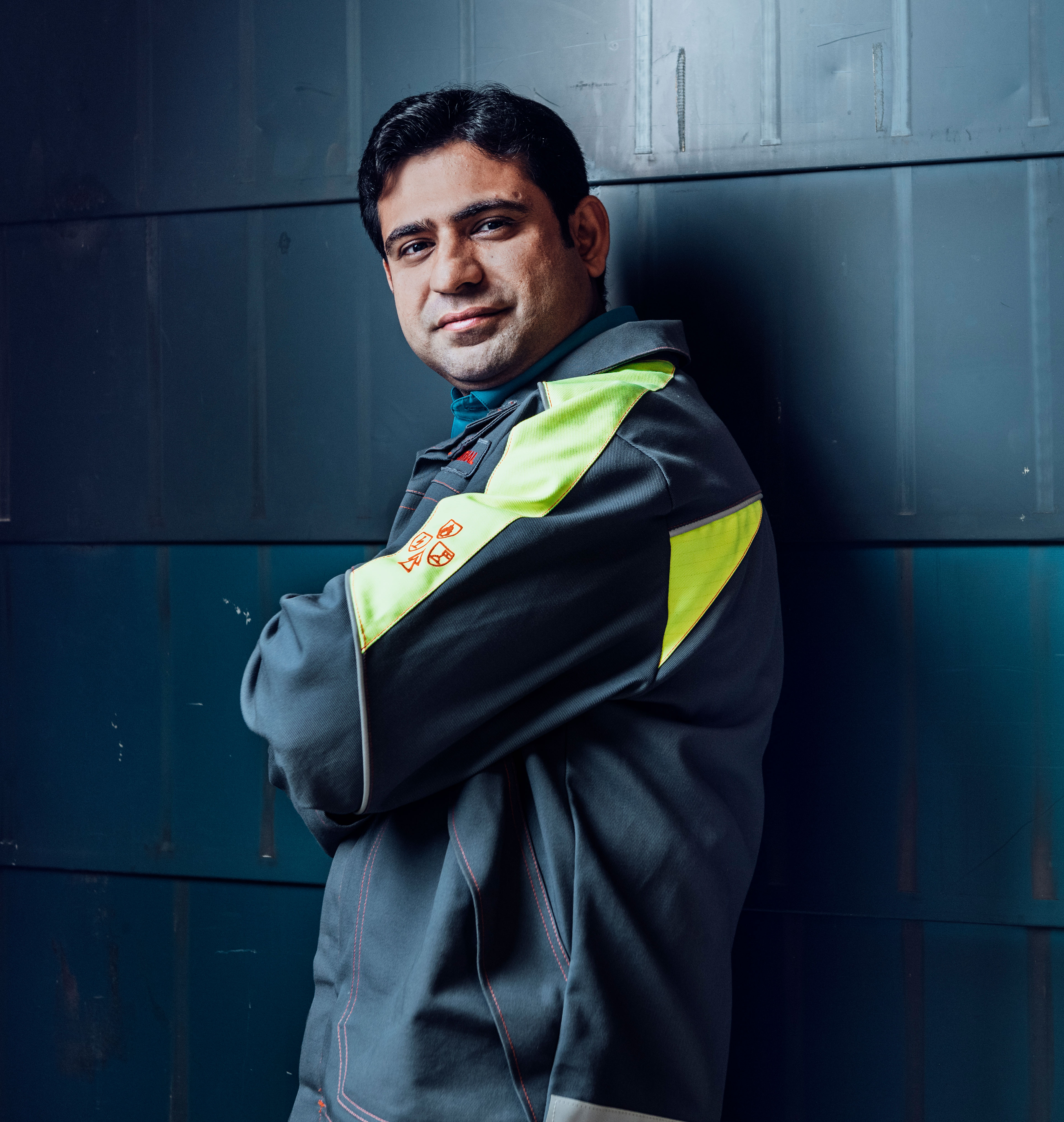In 2019, Kanthal and Swerim, a Swedish metals research institute, forged a strategic partnership, investing in state-of-the-art atomizing equipment. This collaboration aims to secure Sweden's position at the forefront of the metal powder industry while pushing the boundaries of additive manufacturing (AM) and powder metallurgy (PM) applications.
Delving into Atomization - The Core Process:
The cutting-edge atomizing equipment that was installed in 2021 transforms molten metal into fine powder by spraying metal melt stream with pressurized inert gas, typically nitrogen or argon. Depending on the setup, fine or ultra-fine metal powders are produced. Kanthal co-financed this venture with an investment of approximately 5 million SEK. The investment also includes equipment for powder size classification.
 Saud Saleem, Senior R&D engineer, Kanthal.Saud Saleem, senior R&D engineer at Kanthal, explains that the equipment installed at Swerim's Stockholm site empowers Kanthal to enhance its existing product portfolio and develop new products faster and more cost-effectively. This lab-scale atomization facility also allows Kanthal to expand its expertise in powder production without compromising the current production flow.
Saud Saleem, Senior R&D engineer, Kanthal.Saud Saleem, senior R&D engineer at Kanthal, explains that the equipment installed at Swerim's Stockholm site empowers Kanthal to enhance its existing product portfolio and develop new products faster and more cost-effectively. This lab-scale atomization facility also allows Kanthal to expand its expertise in powder production without compromising the current production flow.
This partnership has led to the creation of a small-scale powder plant meticulously designed for research purposes.
Saleem adds, "The collaboration between Kanthal and Swerim extends well beyond traditional manufacturing. This partnership has led to the creation of a small-scale powder plant meticulously designed for research purposes. Its flexible design facilitates swift transitions between different alloys, enabling experiments with various powder properties. It addresses the need for a flexible and versatile facility to accommodate rapid experimentation while maintaining high quality and efficient production standards."
Next Generation Powder-based Solutions
These metal powders play a pivotal role in developing sustainable technologies and can help create new products with exceptional high-temperature creep strength, measuring a material's ability to withstand prolonged stress or load without significant continuous deformation. Given the reliance of many electric solutions on powder-based products, this plant will play a considerable role in testing and developing new solutions.
Powders can be produced in various sizes, from coarse to fine, employing close-coupled or free-fall techniques. This versatility is essential for producing powders suitable for different applications and making other modifications in the powder, paving the way for next-generation powder products.
At the Swerim’s facility, Kanthal has access to advanced test equipment, including:
- Gas atomization equipment for metal alloys, suitable for batch sizes of 30-90 kg of steel, equipped with gas preheating and associated classification equipment.
- Hot Isostatic Press (HIP) specifications: 2,000°C, 2,000 bar, work area 130x260 mm, maximum load 25 kg.
- Additive manufacturing equipment/3D printer.
- Sintering furnaces and gas analysis (Photoacoustic spectroscopy - PAS and mass spectrometer for analysis of reduction gases).
- Image analysis equipment (dynamic).
- Particle size analysis equipment (laser diffraction).
Kanthal's Long History with Powder Metallurgy:
Kanthal has been successfully using Kanthal® APM and Kanthal® APMT iron-chromium-aluminum (FeCrAl) alloys for several decades. These alloys were initially developed to support the growing production of semiconductor wafers. However, over time, Kanthal® APM has emerged as a crucial enabler of the transformation in various industries, such as steel, glass, and automotive part-makers, helping them move from fossil fuel-based furnaces to electric-based industrial heating. This shift is addressing the twin priorities of productivity and sustainability.
In 2019, Kanthal ventured into additive manufacturing services by introducing Kanthal® AM100, the world's first alloy explicitly developed for heating applications using 3D printing technology. This marked a pivotal moment in the industry, unlocking new design and manufacturing capabilities previously considered unattainable.
Groundbreaking Leap in Metal Powder Technology:
Kanthal and Swerim are at the forefront of the powder metallurgy industry and are continuously working towards further developing this technology. With a joint vision to make groundbreaking advancements in this field, it was only natural for the best in the industry to collaborate and work together.
This collaboration contributes to Sweden maintaining its world-leading position in metal powder.
 Pontus Sjöberg, CEO, Swerim.Swerim CEO Pontus Sjöberg says, "The metals research institute Swerim and Kanthal have a long-standing and fruitful collaboration regarding producing and developing metal powder. We share a common vision and work towards a fossil-free value chain from mining to steel. This collaboration contributes to Sweden maintaining its world-leading position in metal powder."
Pontus Sjöberg, CEO, Swerim.Swerim CEO Pontus Sjöberg says, "The metals research institute Swerim and Kanthal have a long-standing and fruitful collaboration regarding producing and developing metal powder. We share a common vision and work towards a fossil-free value chain from mining to steel. This collaboration contributes to Sweden maintaining its world-leading position in metal powder."
In a world where the demand for innovation and sustainability is ever-growing, the potential of metal powders continues to expand, promising a brighter and more efficient future for manufacturing and beyond. As exemplified by this collaboration, the synergy of tradition and innovation paves the way for a future where metal powders are indispensable in addressing society's pressing challenges and empowering innovation on a global scale.